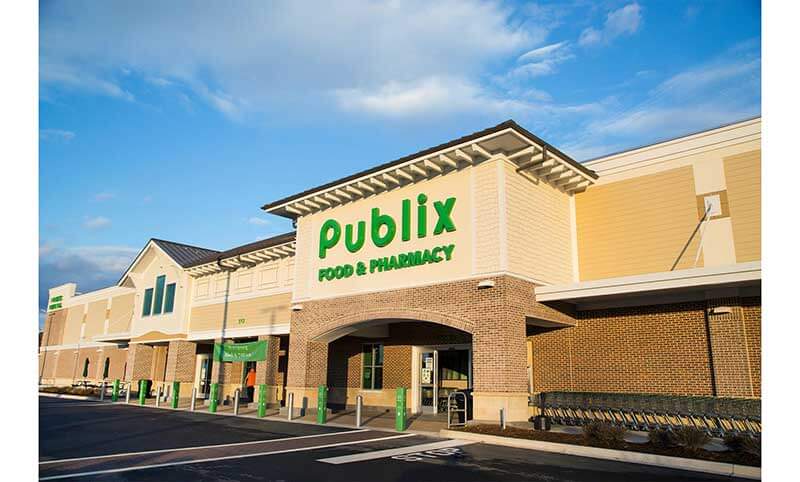Publix Super Markets has reported its first quarter 2020 results, which include the beginning of the coronavirus pandemic as it was declared a national emergency on March 13. Due to the pandemic, Publix has been classified as an essential business and has remained open to serve the needs of its customers. It is a top priority of Publix to continue to serve the communities in which it operates in a way that protects the health and safety of its associates and customers.
Publix’s sales for the three months ended March 28, 2020 were $11.2 billion, a 16.1 percent increase from $9.7 billion in 2019. Comparable store sales for the three months ended March 28, 2020 increased 14.4 percent. The company estimates its sales for the three months ended March 28, 2020 increased approximately $1 billion or 10.3 percent due to the impact of the coronavirus pandemic.
Net earnings for the three months ended March 28, 2020 were $667.3 million, compared to $981 million in 2019, a decrease of 32 percent. Earnings per share for the three months ended March 28, 2020 decreased to $0.94 per share, down from $1.37 per share in 2019. Net earnings and earnings per share were impacted by net unrealized losses and gains on equity securities. Excluding the impact of net unrealized losses on equity securities in 2020 and net unrealized gains on equity securities in 2019, net earnings for the three months ended March 28, 2020 would have been $956.2 million, compared to $741.7 million in 2019, an increase of 28.9 percent. Earnings per share would have been $1.35 per share, compared to $1.04 per share in 2019.
These amounts are based on unaudited financial statements that were to be filed May 1 with the U.S. Securities and Exchange Commission and made available on the company’s website at corporate.publix.com/stock.
Effective May 1, Publix’s stock price increased from $48.90 per share to $50.10 per share. Publix stock is not publicly traded and is made available for sale only to current Publix associates and members of its board of directors.
“Never before have we experienced a more challenging time,” said Publix CEO Todd Jones. “Our associates’ efforts to serve our customers and communities have been nothing short of extraordinary. I want to thank our associates and couldn’t be more proud to serve alongside them.”
Non-GAAP financial measures
In addition to reporting financial results for the three months ended March 28, 2020 and March 30, 2019 in accordance with U.S. generally accepted accounting principles (GAAP), the company presents net earnings and earnings per share excluding the impact of equity securities being measured at fair value with net unrealized gains and losses from changes in the fair value recognized in earnings (fair value adjustment). These measures are not in accordance with, or an alternative to, GAAP. The company excludes the impact of the fair value adjustment since it is primarily due to temporary equity market fluctuations that do not reflect the company’s operations. The company believes this information is useful in providing period-to-period comparisons of the results of operations. Following is a reconciliation of net earnings to net earnings excluding the impact of the fair value adjustment for the three months ended March 28, 2020 and March 30, 2019:
| Three Months Ended | ||||||||||
| March 28, 2020 | March 30, 2019 | |||||||||
| (amounts are in millions, except per share amounts) |
||||||||||
| Net earnings | $ | 667.3 | 981.0 | |||||||
| Fair value adjustment, due to net unrealized loss (gain), on equity securities held at end of period | 387.4 | (314.3) | ||||||||
| Net loss on sale of equity securities previously recognized through fair value adjustment | — | (6.6) | ||||||||
| Income tax (benefit) expense (1) | (98.5) | 81.6 | ||||||||
| Net earnings excluding impact of fair value adjustment | $ | 956.2 | 741.7 | |||||||
| Weighted average shares outstanding | 706.8 | 716.0 | ||||||||
| Earnings per share excluding impact of fair value adjustment | $ | 1.35 | 1.04 | |||||||
(1) Income tax (benefit) expense is based on the company’s combined federal and state statutory income tax rates.
Publix, based in Lakeland, Florida, is the largest employee-owned company in the U.S. with more than 220,000 associates. It currently operates 1,242 stores in Florida, Georgia, Alabama, Tennessee, South Carolina, North Carolina and Virginia. Publix is privately owned with 2019 sales of $38.1 billion.

